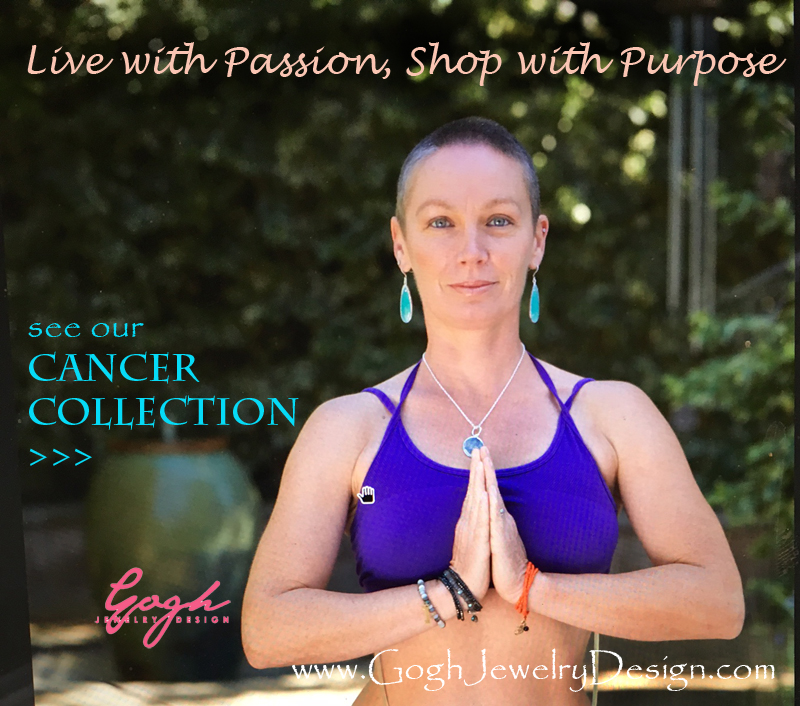
Journey of Strength: How scuba diving helped me heal from breast cancer
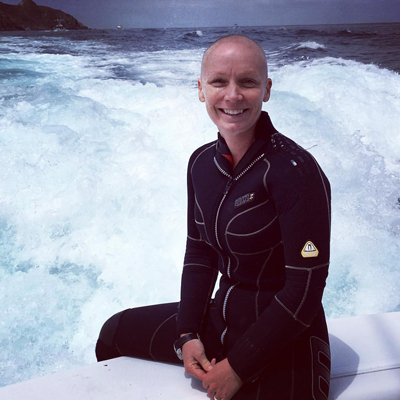 I did not choose to have breast cancer. But then again, nobody does.
I did not choose to have breast cancer. But then again, nobody does.
I eat organic. I exercise every day. I teach scuba diving for a living and have a relatively stress free life. Why me?
However, I am choosing how I go through the journey.
2016 was a horrible year. My grandmother died of old age. My mother died of breast cancer. My first cousin died of breast cancer at age 39. Then my diagnosis.
I was 39.
Maybe it comes from spending most of my life underwater, but I choose to look at the bright side of things. My grandma was 97. She had a beautiful life. My mom was 67. She saw my sister and I grow up. She was with me when my son was born four years ago. And she was gifted with a granddaughter from my sister just before she passed away.
Fortunately the doctors detected my cancer early.
I didn't feel any signs, like a lump. The only reason went for a mammogram was because when my mother was diagnosed the previous year, I was told to get checked. That year it was all good. The following, after my routine check-up, they called me back for an ultrasound.
The biopsy was the day before I flew to my hometown of Budapest, to see my mother one last time. She was loosing her battle with cancer. In one year it had spread to her lymph nodes, her liver and pretty much her entire body, despite all the treatments the doctors tried.
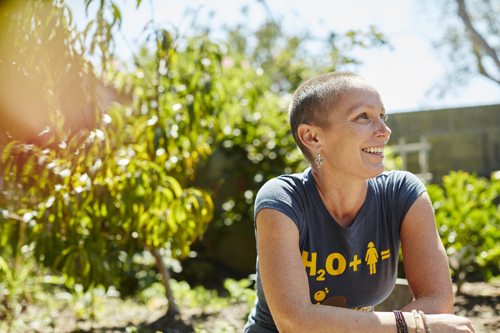 I called my doctor for my biopsy results as soon as we landed. She had promised to give them to me on the phone, despite the fact that this is not how they normally do things. But given my circumstances she made an exception.
I called my doctor for my biopsy results as soon as we landed. She had promised to give them to me on the phone, despite the fact that this is not how they normally do things. But given my circumstances she made an exception.
On that phone call, thousands of miles away from the American home, family and community that I had built over the past 10 years, I learned that I had breast cancer.
After the initial shock, I needed to come up with a game plan. First, I had to fly back to Los Angeles and meet my doctors. My experience with my mother and cousin had taught me that time is of the essence.
As soon as I was back in L.A., I headed to meet my oncologist. He had bad news and good news. "I already know I have cancer, so give me the good news," I said. Luckily, my cancer would respond to hormone therapy, unlike my mother's. And it was stage one.
I decided on a double mastectomy.
Chemotherapy was not fun at all. One of the things that hit me hardest during this whole journey was the losing of my hair. I decided to be bold and be bald because you can’t really scuba dive in a wig. Most importantly however, I did not want to pretend that everything was "normal."
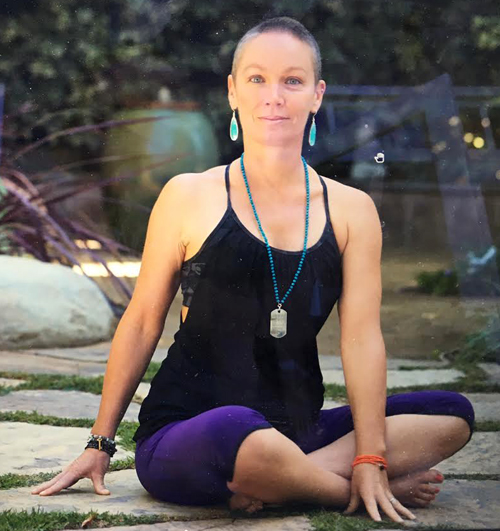 Over the next few months I had good days and bad days. At first, when I was quite weak, the closest I could get to the ocean was short walks at the beach. Just listening to the sounds of the waves was healing. When I felt better, between treatments, I went swimming.
Over the next few months I had good days and bad days. At first, when I was quite weak, the closest I could get to the ocean was short walks at the beach. Just listening to the sounds of the waves was healing. When I felt better, between treatments, I went swimming.
As I got stronger, I yearned for scuba diving. I just wanted to breathe underwater and hover weightless, watching the simple life of sea creatures. Scuba diving is my Shangri-La, my happy place, my passion.
I was 13 years old when I started competing in a sport called "orienteering diving," which takes place in lakes with almost no visibility. The sport was sponsored by the Hungarian military, and the object is to find pre-determined destinations using a compass, map and a distance accounting device. I trained five times a week and spent every weekend and summer camping by the lakes and rivers of Hungary. I logged more than 500 dives before I ever saw the sea.
Hungary was a communist country, and we were not allowed to travel anywhere except to Mother Russia, so I never saw the ocean as a child. After the Berlin Wall fell, our dive club went to Corfu, in Greece. That was the first time I touched salt water.
We dropped down into a breathtaking crystal-clear bay and swam with sharks, turtles and octopus. When I surfaced, I knew that I wanted to be a dive instructor. I decided then that I would live in a place where there are palm trees, sunshine and an ocean to dive in – and no winter.
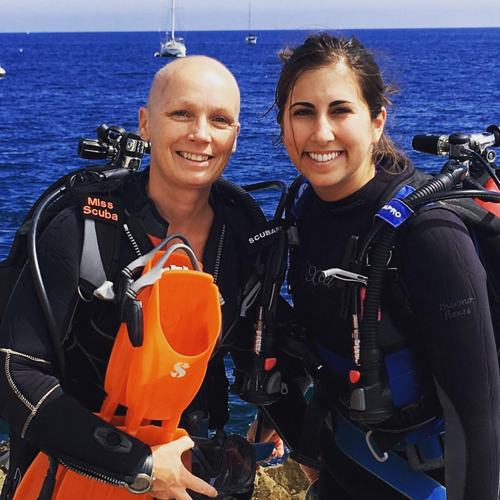 Most people considered scuba diving as a hobby. My friends and family were skeptical when I told them I was going to make a living doing what I loved. Every time they told me that I couldn’t do it, I just looked into their eyes and said, “You just watch me.”
Most people considered scuba diving as a hobby. My friends and family were skeptical when I told them I was going to make a living doing what I loved. Every time they told me that I couldn’t do it, I just looked into their eyes and said, “You just watch me.”
Having cancer only reinforced my belief that life is too short to listen to people telling you what you cannot or should not do.
A week after my last chemo I organized a trip to Catalina island to celebrate PADI Women’s Dive Day with 20 other female divers. After spending the day in the kelp forest, we talked about our favorite experiences underwater, and how the sport empowered us. They had so many questions about my experience. It was my first step in leading by example – reminding other women that if I cansurvive and thrive, they can, too.
I feel like a phoenix, that mythical sacred firebird who regenerates when hurt. After two years of treatments and surgeries I am my old self.
While I do have to take pills my doctor prescribes for another couple of years to minimize the chance of cancer reoccurring, the medicine that worked best for me was the ocean.
Living in a technology driven fast paced world, I find the quiet moments in the ocean healing my soul one breath at a time. As time passes and my breath slows down, my muscles relax, slowing my body and my thoughts. Underwater I always seem to achieve that meditative state of mind where I can clear my brain from disruptive thoughts and just be in that very moment.
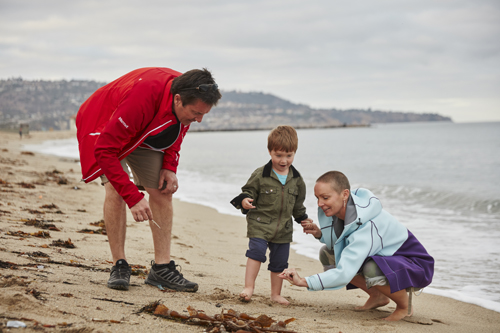 Underwater is the only place in the world outside of space, where I can experience weightlessness and the freedom to move in any direction I choose. This feeling is empowering and reinforces that we are all in charge of our lives and can choose from many course to follow.
Underwater is the only place in the world outside of space, where I can experience weightlessness and the freedom to move in any direction I choose. This feeling is empowering and reinforces that we are all in charge of our lives and can choose from many course to follow.
Emerging, I am recharged and reborn.
I could feel sorry for myself, and my family, for what we had to go through.
But I choose to feel grateful for this gift of healing.
Written by Szilvia Gogh, California. Photos by Daniel Tayenaka. Yoga Photo by David Young-Wolff.
_____________________________________________________
10 TIPS TO SUPPORT PEOPLE WITH CANCER:
In my own cancer journey, I found that the support from family and friends was invaluable. We all want to be that supportive person, yet there are times when we may not know what to do or say. Here are some suggestions informed by my own experience that I would like to share. If you have friends, family members, co-workers, or community members with cancer, one of these tips might just make their day.
1. Offer specific things you can help with, such as taking the dog for a walk, picking up kids from school, or dropping off groceries. Saying, “Call me if you need anything,” doesn’t give your friend enough direction as to how you can help. Someone with cancer may be feeling overwhelmed and may not know how to say what they need.
2. Along those lines, remind her to BREATHE. When a person is diagnosed with cancer, it’s hard to think straight. Millions of thoughts zigzagged through my mind.
3. Encourage him to seek out a second opinion and maybe even a third! Sometimes they might not agree, but opinions offer choices.
4. Show up for a visit in person. Don’t just call. It means a lot.
5. Go for a walk together - short or long, depending how he feels. Fresh air does great things to the body and mind.
6. Bring over your friend’s favorite foods to provide comfort and to tempt the palate. Eating is hard after chemotherapy.
7. Deliver soups. One of the side effects of most pain medications and chemotherapy drugs is constipation. Lack of exercise makes it even worse. Soup is a remedy to help get things moving and encourage proper hydration.
8. Tell her about the Look Good, Feel Better program: lookgoodfeelbetter.org. It is a free beauty workshop for cancer patients. This program taught me how to make eyebrows when mine fell out during chemo, among other things. As part of the event, people received a personalized bag with the make-up that we would need, all donated by cosmetic companies.
9. Offer to drive to a doctor’s visit, test, or chemotherapy treatment. Some facilities even allow friends to stay and hang out during treatment. Bring books, jokes, music, headphones, eye pillows, warm socks, or other comfort items your friend may have forgotten to pack.
10. Be there even months after the treatment. Everybody comes out of the woodwork when their friend becomes sick and reaches out. However, cancer treatment is a long journey and individuals and families need support months later as well.
